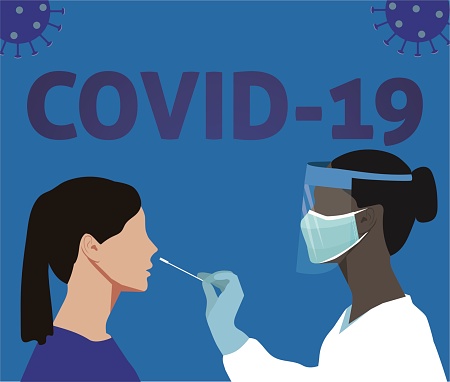It’s an excellent idea that has a speedy point of care test for flu and coronavirus. It’s quick and precise and is ideal for use in hospitals or clinics.
The variety of COVID-19 tests are a crucial subject to understand. There’s an antigen test that can be performed quickly, but isn’t as effective in determining whether someone has an active infection within their body or not and then there are molecular-based and PCR-based procedures that offer more information on whether one might have been previously infected by the virus however, these take some time since they require confirmation tests from patients prior to.
Antigen Tests
As well as helping to identify those at or near the peak disease, quick diagnostic tests for coronavirus also offer additional advantages over antigen-based tests. They’re quicker and less expensive! What’s the down side? It’s not always accurate, which means that you could misunderstand your client’s Status Degrees even if they had an undetermined outcome from their lab report.
The coronavirus is a powerful virus that infiltrates our cells , and then begins to replicate. The genetic material of the replicase becomes part of what makes up you but it takes a while for this to happen because the anti-coronavirus antibodies are not developed until about two weeks after the infection has occurred.
Molecular/PCR Tests
Many are unaware that there could be confusion regarding which tests employ PCR. The procedure is employed in all molecular tests on Coronavirus. However it’s essential to note that only certain kinds of tests will yield accurate results due to the fact that they are dependent on the quantity and the type of input material needed. But the PCR method is usually sufficient when you’re covering news stories where accuracy could be more crucial as compared to other methods.
The PCR test is the next version of Rapid Diagnostics, delivers instant results at a low cost and high accuracy. While there are a variety of rapid tests to choose from, this is different because it is not just able to speed up the process of testing by a factor of hundreds, but also ensures the 99% accuracy. It does not require particular training.
The PCR method is among the most popular ways to identify DNA, however it’s never 100% accurate. Some molecular tests have been reported to have false-negative rate as high as 15% or even 20%.
Antibody Tests
It is possible to diagnose COVID-19 through taking a sample of blood, and then testing it for antibodies. These tests are not considered as diagnostic tests, but they could help identify other possible causes of chronic illness such as arthritis and lupus caused by shoulder pain.
Scientists will need to have access to samples from those who are infected with COVID-19 virus in order to develop the vaccine. These can help to create protection against further infections if the person has an active infection or is positive for antibodies in the past.
For more information, click rapid antigen test certificate

